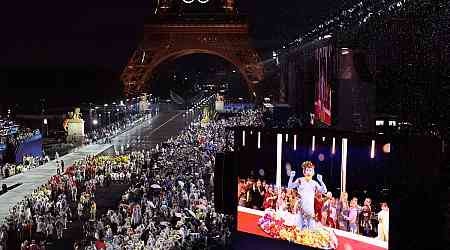Depending on how you look at it, Netflix is either an ever-running fountain of things to watch or a massive firehose of choices that sometimes feels more intimidating than bounteous. We’re here to help. Here’s a running list of roughly two dozen films—great ones, entertaining ones, or maybe even simply transfixing ones—that are worth your time.
How did we choose? There’s no scientific formula, beyond lots and lots of menu scrolling, and a desire to represent films across a range of genres. Personal taste is also obviously a factor: my top picks may not be yours, but there’s also the chance that you’ll make a new discovery or be inspired to have a second look at an old favorite. A fountain, after all, should be a source of sustenance and rejuvenation.
[time-brightcove not-tgx=”true”]Just Plain Great Watches
The Young Victoria (2009)
Before she was a dowager draped in black, Britain’s longest-reigning queen was a teenage unmarried royal, already acquainted with the man who would become her husband but resistant to the idea of an engineered match. It turns out, though, that young Albert is fun to be with—and In Jean-Marc Vallée’s The Young Victoria, he’s also played by dreamboat Rupert Friend. Who could resist? Emily Blunt plays the young queen, sure of her own mind and heart—this is a wonderful Blunt performance, characteristically subtle and mischievous, just one of the pleasures of this deeply enjoyable picture.
Emily the Criminal (2022)

A young Los Angeles artist and restaurant worker, saddled with crippling debts including school loans, becomes involved with a group of criminals who pay people to buy merchandise with fake credit cards—and finds out she’s all too good at this new, easy-money profession. As the Emily of the title, Aubrey Plaza is both flinty and sympathetic—you feel for her as she’s drawn deeper into this dishonest and dangerous game, because it’s all too easy to see the desperation that drives her. Director John Patton Ford gives us a modern thriller that also works as an excoriation of the economic injustices that separate the haves from the have-nots in America.
The Gift (2015)
Actor-writer-director Joel Edgerton made his feature debut with this creepy, understated thriller, which also turns out to be a showcase for one of our finest actresses. Jason Bateman plays up-and-coming businessguy Simon, who moves his emotionally fragile wife, Rebecca Hall’s Robyn, from their Chicago apartment to a sprawling modern house somewhere in California. As Simon is paying for a bunch of stuff at a home-furnishings store, a reticent stranger approaches him, identifying himself as Gordo, an old classmate. (He’s played by Edgerton.) Before long, Gordo has insinuated himself into the couple’s life, in ways that are both subtly and overtly alarming. (Dog lovers should take note, though, that no harm comes to the family pup.) The movie at first plays like your stock “when bad things happen to good people” thriller, but Edgerton is more interested in exploring human culpability, regret, and compassion. And Hall, as a woman who’s been slowly waking up to her reality for a long time without even knowing it, is terrific. The Gift isn’t even 10 years old—but it’s the kind of solid, workaday thriller we don’t see much of these days.
Hunt for the Wilderpeople (2016)
Before the name Taika Waititi began drawing collective groans from the Internet, the New Zealand director made a superb, astute comedy about an unwanted Maōri kid (Julian Dennison) who becomes the unlikely charge of a gruff foster dad (Sam Neill), the two eventually—but not too quickly—forging an unbreakable bond. Hunt for the Wilderpeople—adapted from Barry Crump’s 1986 novel Wild Pork and Watercress—is so fleet and funny that it doesn’t immediately hit as a critique of colonialism in New Zealand, but that was Waititi’s clear intent. His gifts will hopefully outlast his ability to annoy us.
Wild Things (1998)
In this steamy, tawdry, gloriously over-the-top South Florida noir, 18-year-old rich-girl sexpot Kelly (Denise Richards) tries to seduce her guidance counselor, straight-arrow cutie Sam (Matt Dillon), accusing him of rape after he rejects her advances. Then a classmate, goth outsider Suzie (Neve Campbell), steps forward with another accusation. Things don’t look too good for poor Sam, especially when crusty detective Ray Duquette (Kevin Bacon) steps in to investigate. But nothing is as it appears—is it ever? Director John McNaughton keeps this story, twistier than a rattlesnake, humming. Wild Things probably falls into the “you couldn’t make this movie today” category—which tells us less about how far we’ve come than about how much we’ve lost.
Stone-Cold Classics
Oldboy (2003)
Park Chan-Wook’s operatic revenge thriller isn’t just a classic of modern Korean cinema, it’s a modern-day classic, period. Oh Dae-su (Choi Min-sik) is an average-seeming Seoul businessman who’s mysteriously abducted and confined to a cell resembling a seedy hotel room, where he’s fed a diet of nothing but fried dumplings—for 15 years. Then, just as mysteriously, he’s freed. He meets a lovely young sushi chef, Mido (Kang Hye-jeong), who tries to help him rebuild his life—and find out exactly who imprisoned him, and why. Park’s film was remade by Spike Lee in 2013, but that version didn’t come close to the anguished but often witty poetry of Park’s version. Although Park himself is reportedly adapting his movie into an English-language TV adaptation, for now, the original Oldboy is the only Oldboy that matters.
Slap Shot (1977)
Layoffs in a Pennsylvania steel-mill town mean the future of the local minor-league hockey team, the Charlestown Chiefs, is also in jeopardy. Paul Newman’s Reggie Dunlop, the team’s coach and a player as well, realizes that excessive violence in the rink draws more fans—but Michael Ontkean’s Ned Braden, the team’s MVP, resists. Director George Roy Hill’s wry, raunchy comedy wasn’t a huge success upon its release, but its reputation has been rightfully redeemed in recent years. Toward the end of his life, Newman often cited the role of Dunlop as one of his favorites; the performance, in all its wicked, foul-mouthed glory, is freeing to watch. No wonder Newman loved the experience.
Directorial Debuts
Aftersun (2022)

One of the finest films of 2022 was Scottish writer-director Charlotte Wells’ Aftersun, in which a troubled dad, Paul Mescal’s Calum, takes his 11-year-old daughter, Sophie (Frankie Corio), on a rare holiday break to Turkey. Calum has not been, and will not be, the best father. He has problems of his own, issues that the movie only hints at. (He shows up for the holiday with his arm in a cast, which he later hacks off himself, a suggestion of his general recklessness.) Though Sophie adores him, it’s clear that she’s beginning to drift away from him, in that way adolescent and teenage girls sometimes begin to break away from their fathers. This is a gorgeous, wistful film about all the things kids can’t understand about the world of their parents—and about the ways parents, trying to do the best they can, can fall short in the moment. It’s only in the years afterward that we see how hard they tried, and that their failures may have hurt them more then they did us.
The Mustang (2019)
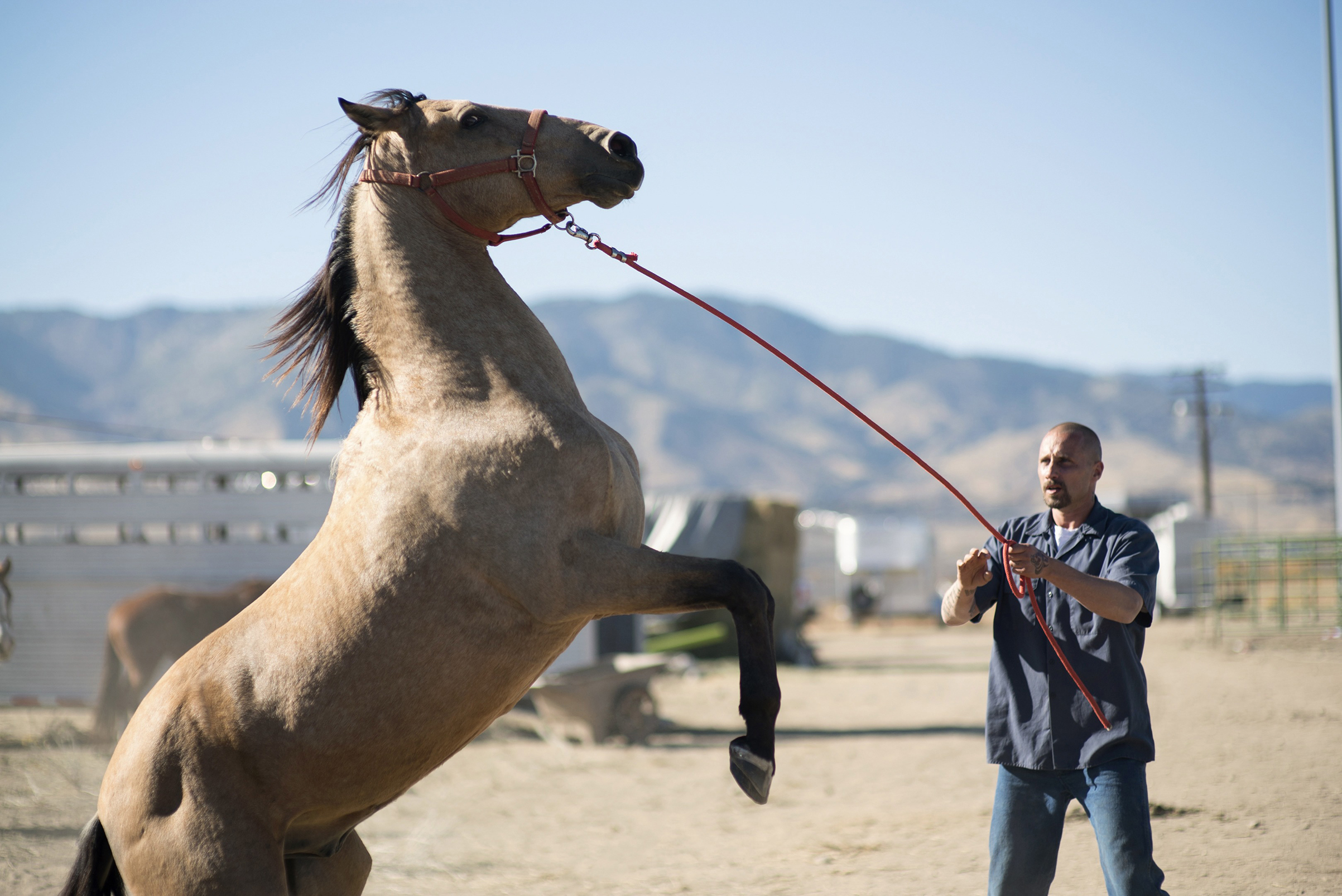
Matthias Schoenaerts, one of the finest actors we’ve got, plays a sullen convict at a Nevada prison fighting his own violent impulses—until he becomes part of a prison program in which he learns to train wild horses. Laure de Clermont-Tonnerre’s debut film is moving and sure-footed, a picture about the way animals can bring out the best in us, even when we’ve convinced ourselves we have nothing left to give.
Atlantics (2019)
French filmmaker Mati Diop’s Atlantics won the Grand Prix at the 2019 Cannes Film Festival, and it’s easy to see why. This ghostly, evocative film tells the story of the women left behind when their men set off from Senegal to Spain in a boat that never arrives. Atlantics is rooted in the dangerous realities of migration, but it’s also a movie about the smudgy space between life and death, and the irresistible pull of young love.
Miss Juneteenth (2020)

Though mother-daughter conflicts are universal, they can feel painfully specific when you’re locked in one. In her smart, assured debut feature, writer-director Channing Godfrey Peoples explores the intricacies of one such clash, even as she creates a tapestry of a whole community. Fort Worth single mom Turquoise (played by a terrific Nicole Beharie) is a former winner of the area’s Miss Juneteenth pageant, which comes with a scholarship attached—only she had to leave that prize on the table when she became pregnant with her daughter, Kai (Alexis Chikaeze), now a teenager herself. Turquoise pushes Kai into entering the pageant, hoping her daughter can fulfill the dream she couldn’t achieve herself; Kai is far more interested in landing a spot on her school’s dance team. It’s as if their past and that of their forebears had stirred up choppy crosscurrents threatening to bear them in different directions. This is a modest film, filled with lived-in characters and details, that adds up to much more than the sum of its parts.
The Edge of Seventeen (2016)
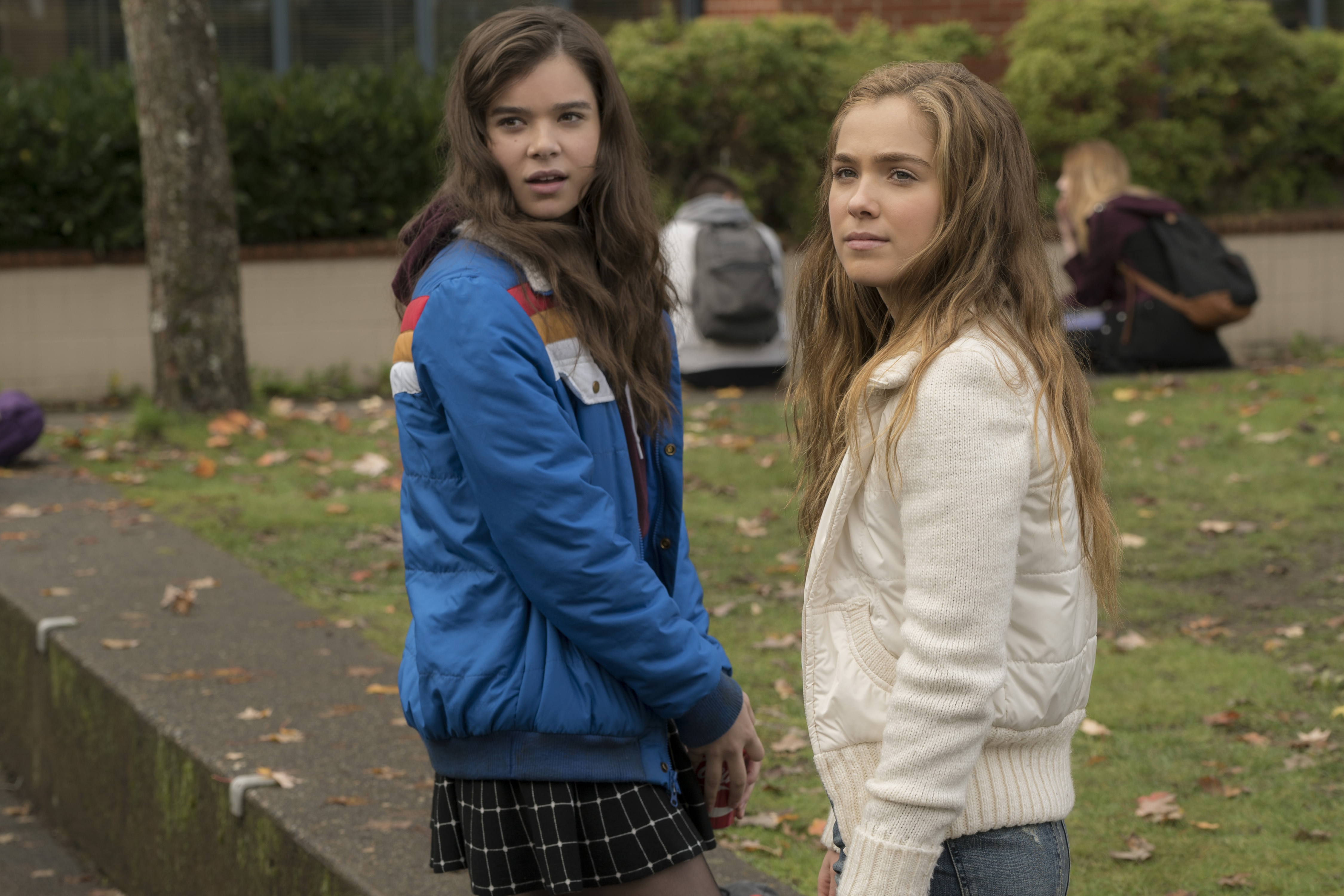
Being self-absorbed comes with the territory of being a teenager. But to truly grow up, you’ve got to jolt yourself out of it. That’s the crux of Kelly Fremon Craig’s radiantly funny and perceptive debut. Hailee Steinfeld plays the crabby, impatient, and judgmental high schooler Nadine. She has only one friend, Haley Lu Richardson’s Krista, who’s much more emotionally generous. Nadine has some good reasons to be angry: her father, whom she adored, died when she was an adolescent, and she can’t get past it—she uses her anger as both shield and weapon against the world. The Edge of Seventeen deals with the necessity of letting go of useless defense mechanisms; it’s funny, original, and raw in the best way.
Brevity Theater: 90 Minutes or Less
Frances Ha (2013)
Noah Baumbach may be the director of this fleet, lively portrait of a 27-year-old free spirit finding herself adrift in that cruelly beautiful town we call New York. But the movie’s star and co-writer, Greta Gerwig, is its animating spirit. Frances is an aspiring dancer, though there’s not much hope she’ll be able to make a living at it. She’s rootless not so much by choice as by chance: her roommate is about to leave the apartment they share, meaning she has to pack up and find a place to roost. Frances Ha captures the spirit of those times in life when even the simplest things—an OK place to live, a job that pays a living wage—seem desperately out of reach. It’s a gorgeous, tender, compact film.
Tangerine (2015)

Sean Baker’s third feature, shot on an iPhone fitted with special anamorphic lenses, may be a relatively lo-fi affair technically. But its heart is big. Best friends, transgender women, and prostitutes Sin-Dee and Alexandra (Kitana Kiki Rodriguez and Mya Taylor) catch up at a Los Angeles doughnut joint on Christmas Day. Sin-Dee has just been sprung from a 28-day jail stay; Alexandra has to break the news to her that her boyfriend has cheated on her while she was in the pokey. The two set off on an odyssey of raucous retaliation—yet there’s so much tenderness in this story that you’re left somewhere in the place between laughing and crying. That’s the Baker touch.
She’s Gotta Have It (1986)
Though Spike Lee had directed a previous film in 1983, this story of a Brooklyn graphic artist (Tracy Camilla Johns) who enjoys a rotating selection of three boyfriends, refusing to commit to any of them and enjoying her freedom, was the first feature-length Lee film to be released. Lee had written, produced, edited, and directed it, as well as taking a supporting role in the film. It arrived with the ebullience of a marching band—nearly everyone saw it, and everyone, whether they’d seen it or not, talked about it. It stands proud as an early calling card for one of our most provocative, inventive directors.
Documentaries
Bombshell: The Hedy Lamarr Story (2017)
By now you know, maybe, that Hedy Lamarr wasn’t just a glamorous Hollywood star, but also the co-inventor, with George Antheil, of a technology known as frequency hopping, a revolutionary method of transmitting radio signals that was put to use in guiding Allied torpedoes during the second world war. Even if you’ve already got the basic facts, Alexandra Dean’s fascinating documentary will prove revelatory, covering Lamarr’s relationships with Hollywood figures like MGM honcho Louis B. Mayer and maker-of-spectacles Cecil B. DeMille, as well as her later years, which she spent as a recluse. Lamarr was fascinating, brilliant, and, until recently, underappreciated. Bombshell, through a wealth of archival footage and crisp storytelling, gives her genius its due.
Four Daughters (2023)
Kaouther Ben Hania’s stirring documentary blends first-person testimony and re-enactments to tell the story of a family of Tunisian women, held together—to a point—by maternal love, though cultural, religious, and moral beliefs will pull them in different directions. Olfa Hamrouni has raised her four daughters with a strict sense of right and wrong, particularly when it comes to sexual propriety. She herself is feisty, having pushed back at her domineering husband during their marriage. But she always tried to ensure that her daughters would grow up to be good Muslim women—though the last thing she wanted was for her two older daughters, Rahma and Ghofrane, to rebel by running away to Libya to become Islamic radicals. Ben Hania chooses an unusual approach in dramatizing this story: Olfa appears as herself, though in parts of the film she’s also played by an actor, Hind Sabri, who fills in to re-create events that are too painful for Olfa to revist. Olfa’s two younger daughters, Eya and Tassir, appear as themselves; the missing daughters are played by two actors, Ichraq Matar (Ghofrane) and Nour Karoui (Rahma). Four Daughters is a story about a family torn apart by religious extremism and institutional misogyny. It’s also about our inability to control the lives of those around us, even if it means losing them forever.
Is That Black Enough for You?!? (2022)

Film critic, curator, ace interviewer, and all-around bon vivant Elvis Mitchell has put together a provocative scrapbook documentary that both celebrates and examines the history of Black cinema in the 1970s, while stretching out to place it in a broader historical context. Interviewees include Harry Belafonte, Charles Burnett, Whoopi Goldberg, and Samuel L. Jackson. But Mitchell’s narration, running in tandem with a vast array of clips, is this documentary’s heart and soul: it’s lively, funny, cutting where it needs to be. Is That Black Enough for You?!? is a mini film class rolled into two hours and 15 minutes.
Crip Camp (2020)

If you think hippies were just a bunch of checked-out kids in love beads, a relic of the 1960s and ‘70s, Crip Camp—directed by Nicole Newnham and Jim LeBrecht and released under Barack and Michelle Obama’s Higher Ground umbrella—will remind you that plenty of them were dedicated activists whose work has had lasting influence. Crip Camp shows how a group of activists with disabilities pressed for the signing of the Americans with Disabilities Act of 1990. But their movement took root years earlier, at an upstate New York summer camp for disabled teenagers called Camp Jened, which operated from the early 1950s until 1997. Much of Crip Camp focuses on Judy Heumann, a Camp Jened counselor who went on to become a leader of the disability civil rights movement. This exuberant film isn’t just a documentary about a specific cause; it’s a treatise on what it means to agitate for change—and how small victories can lead to bigger, more wide-ranging ones.
So Bad They’re Good
Cats (2019)
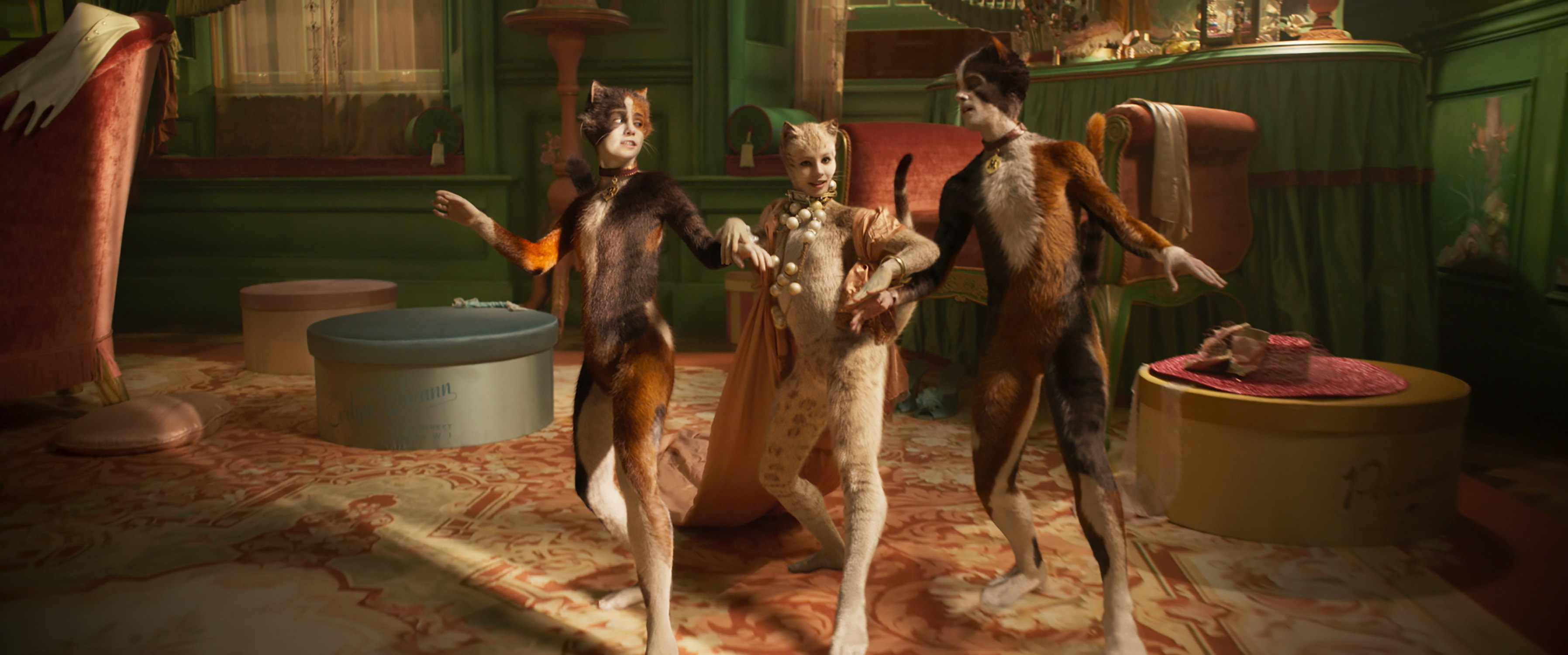
Tom Hooper’s film version of Andrew Lloyd Weber’s frolicsome, paw-licking musical extravaganza is a notorious disaster. But a movie can be transfixing without actually being good, and that’s the allure of Cats. The sight of nude-looking cat people prancing around in fur that looks to have been airbrushed onto their skin is by itself a small miracle of audacity. And the production design, by Eve Stewart, is a genuine, unironic wonder in the way it riffs on the 1970s nostalgia for all things 1920s, a la Ken Russell’s The Boy Friend, or the legendary Big Biba store in London, a short-lived wonderland of extravagantly decorated, themed departments. Come on: couldn’t you just go for a little saucer of something at an art deco-style milk bar?
The Pope’s Exorcist (2023)
Step right up to learn about the possibly but probably not completely true adventures of a real-life exorcist! Russell Crowe plays Father Gabriel Amorth, a Vatican exorcism specialist summoned to Spain, circa 1987, to expel demons from the body of an American kid. In so doing, he exposes a secret long guarded by the Church. This movie is shamefully entertaining; it’s an act of dorky blasphemy. Also, an alert for Camelot and Django fans: Franco Nero plays the Pope.
Netflix Originals Worth Revisiting
Dolemite Is My Name (2019)
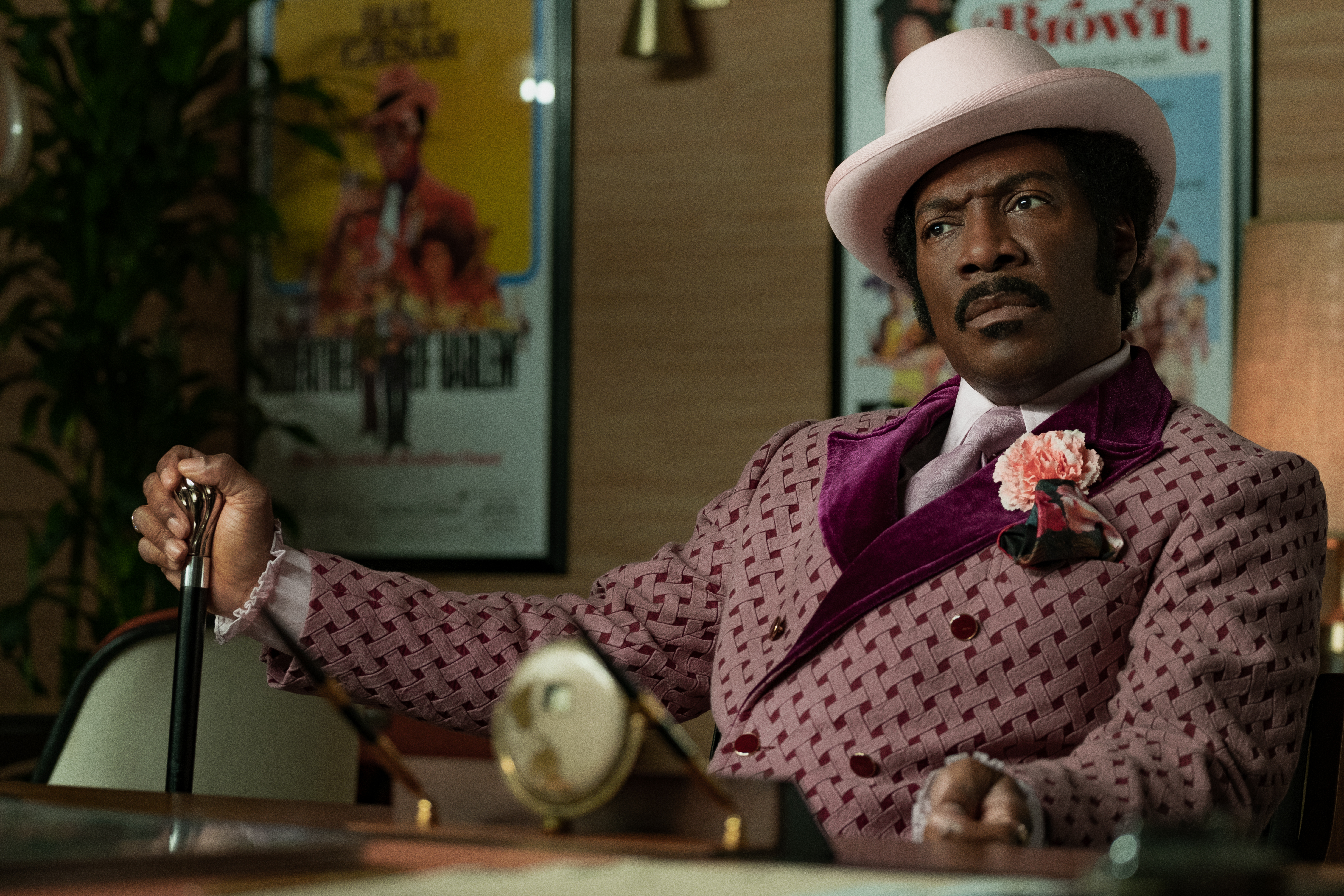
Eddie Murphy gives a terrific performance as real-life Blaxploitation comedian, proto-rapper and movie star Rudy Ray Moore, whose alter-ego, Dolemite, was a kind of Afro-beatnik troubadour martial-arts expert in wild threads. Director Craig Brewer creates space for Murphy and a fine supporting cast—including Snoop Dogg, Da’Vine Joy Randolph, and Wesley Snipes—to shine. The movie isn’t just a celebration of the DIY aesthetic; it’s about self-reinvention through sheer force of will.
The Half of It (2020)
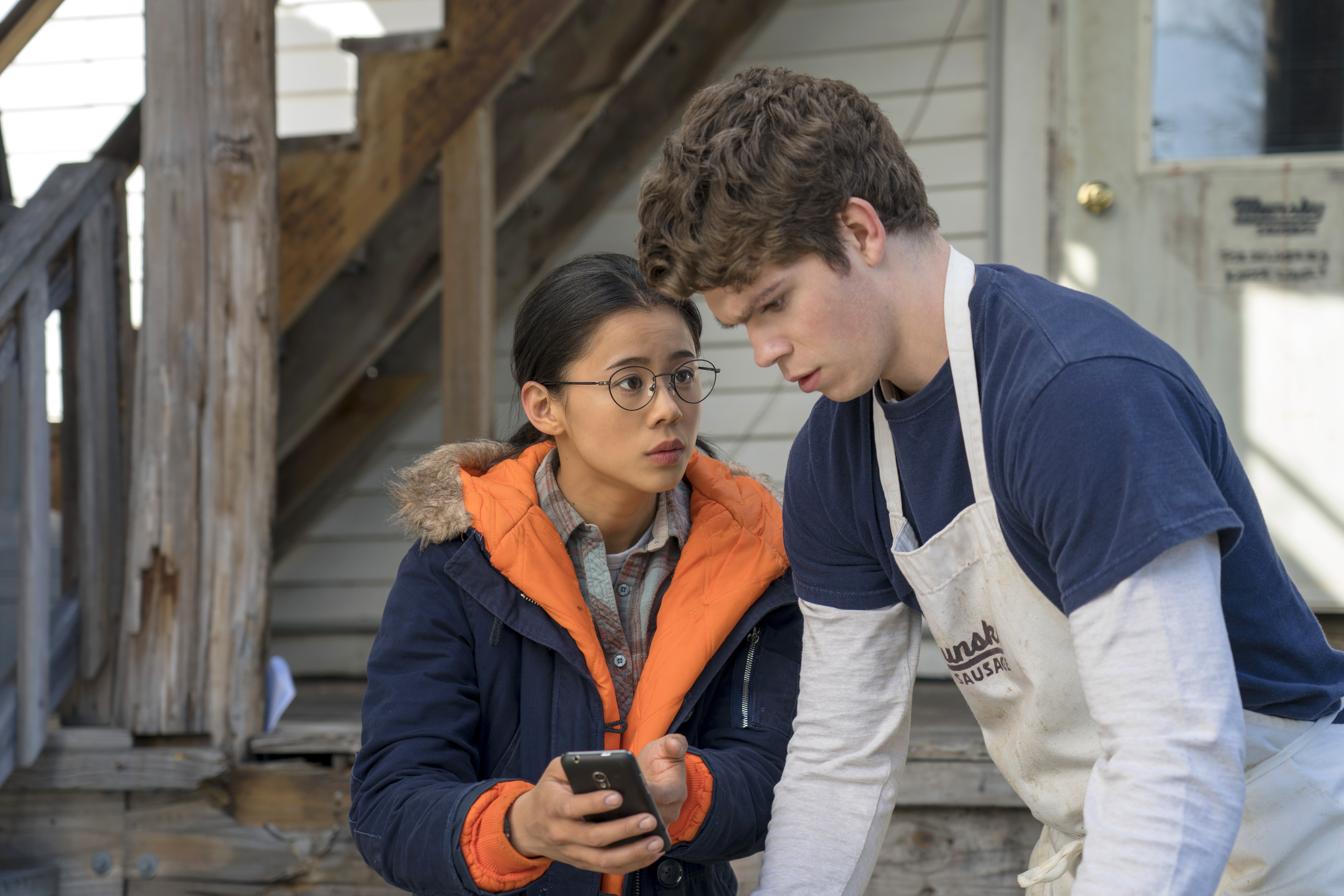
In Alice Wu’s delightful teen romantic comedy, a straight-A student living in a dull town in the Pacific Northwest, Leah Lewis’s Ellie, scrapes together money for herself and her underemployed dad by writing A papers for other students. Then a charming jock, Daniel Diemer’s Paul, asks her to write a love letter, Cyrano de Bergerac-style, to the girl he has a crush on, smart, kind, beautiful, and bookish Aster (Alexxis Lemire). The catch is that Ellie has a crush on Aster too. As it explores the rocky terrain of teenage love, and teenage friendships, The Half of It moves in directions you don’t expect. And it’s so generous to all its characters that it leaves a sweet, wistful glow in its wake.
The Irishman (2019)

Young mobsters have it all. Their jobs—which may involve stabbing, shooting, or strangling, as well as betrayals and avowals of loyalty, and locking bodies in car trunks for later disposal—may be slightly stressful at times, but the effects are temporary. There’s always a mistress to go home to, a club where the waiters scurry to set up your special table, a cigar to be smoked or a bottle of champagne to open; there’s no need to worry about tomorrow. But what happens to old mobsters? Martin Scorsese’s 25th narrative feature film The Irishman is all about that tomorrow. Robert De Niro plays real-life gangster Frank “The Irishman” Sheeran, who late in life claimed that it was he who killed Jimmy Hoffa, the onetime president of the Teamsters union who disappeared in 1975. In the movie’s flashback scenes, Hoffa is played with ebullience and a touch of mournfulness by Al Pacino. Scorsese takes his time in letting this story unspool; the total runtime is around three and a half hours. But as you watch, you begin to feel as if you’re living with the characters rather than merely watching them. The result is a beautiful, bittersweet movie about having the chance to face up to what your life has meant and realizing, perhaps, that you’ve filled it with sand instead of gold.
Mudbound (2017)
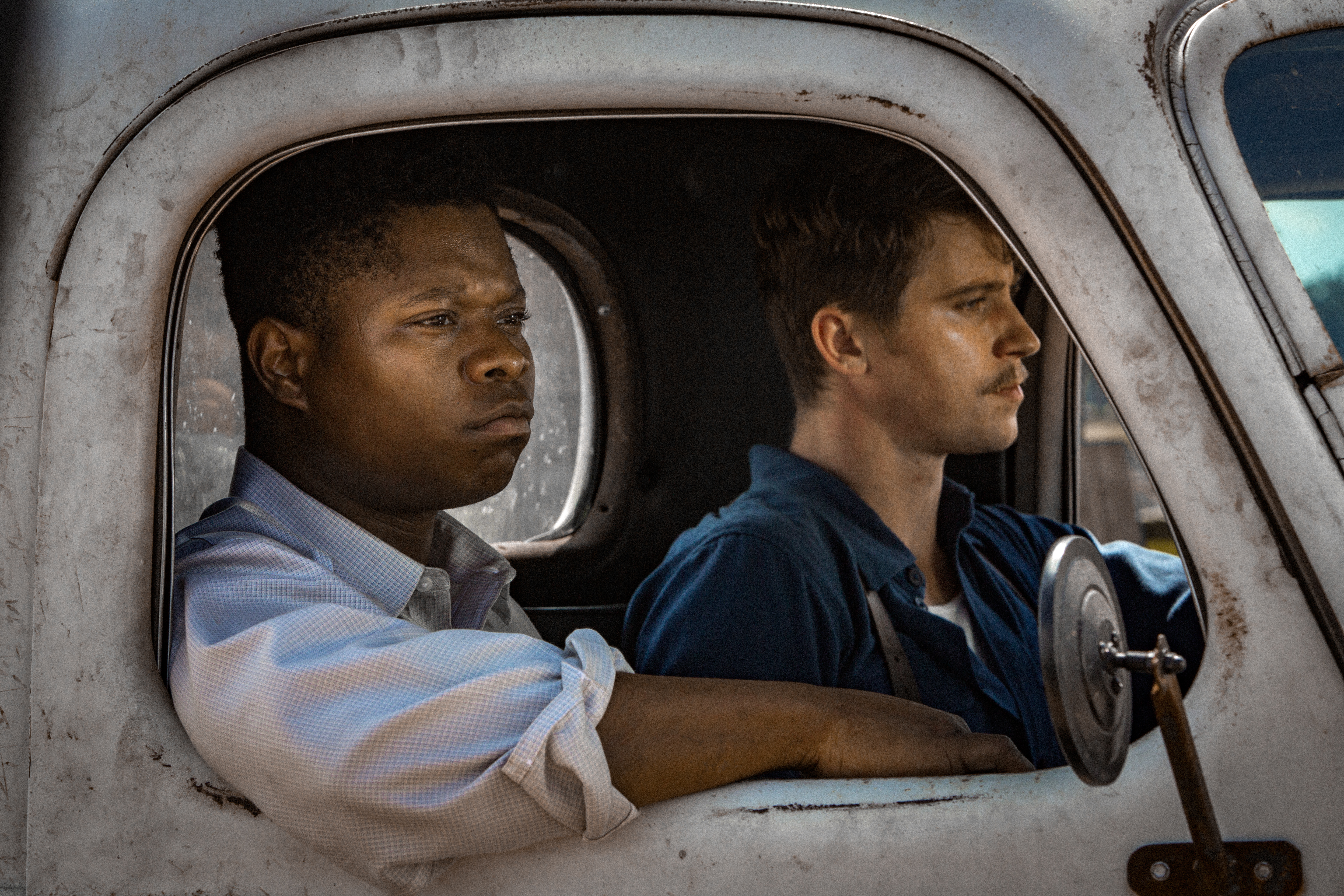
Dee Rees’ superb adaptation of Hillary Jordan’s 2008 novel is an intimate epic about two American farming families, one Black and one white, working the land in the Mississippi Delta in the 1940s. That land is owned, ostensibly, by a white couple, the McAllans (played by Jason Clarke and Carey Mulligan). They lease part of it to a Black family, headed by Hap and Florence Jackson (Rob Morgan and Mary J. Blige), whose ties to the property go back generations; by all rights, they own it, though they have no deed to prove legally that it’s theirs. Mudbound works as a thumbnail picture of midcentury American racism and injustice, and as a reminder of how slowly things really change in this country. And it’s one of those movies where every member of the cast—which also includes Jason Mitchell and Garrett Hedlund—is so good that you can hardly believe the miracle that brought them all into the same movie. There’s not a minute in Mudbound that doesn’t feel deeply felt and believable.
























